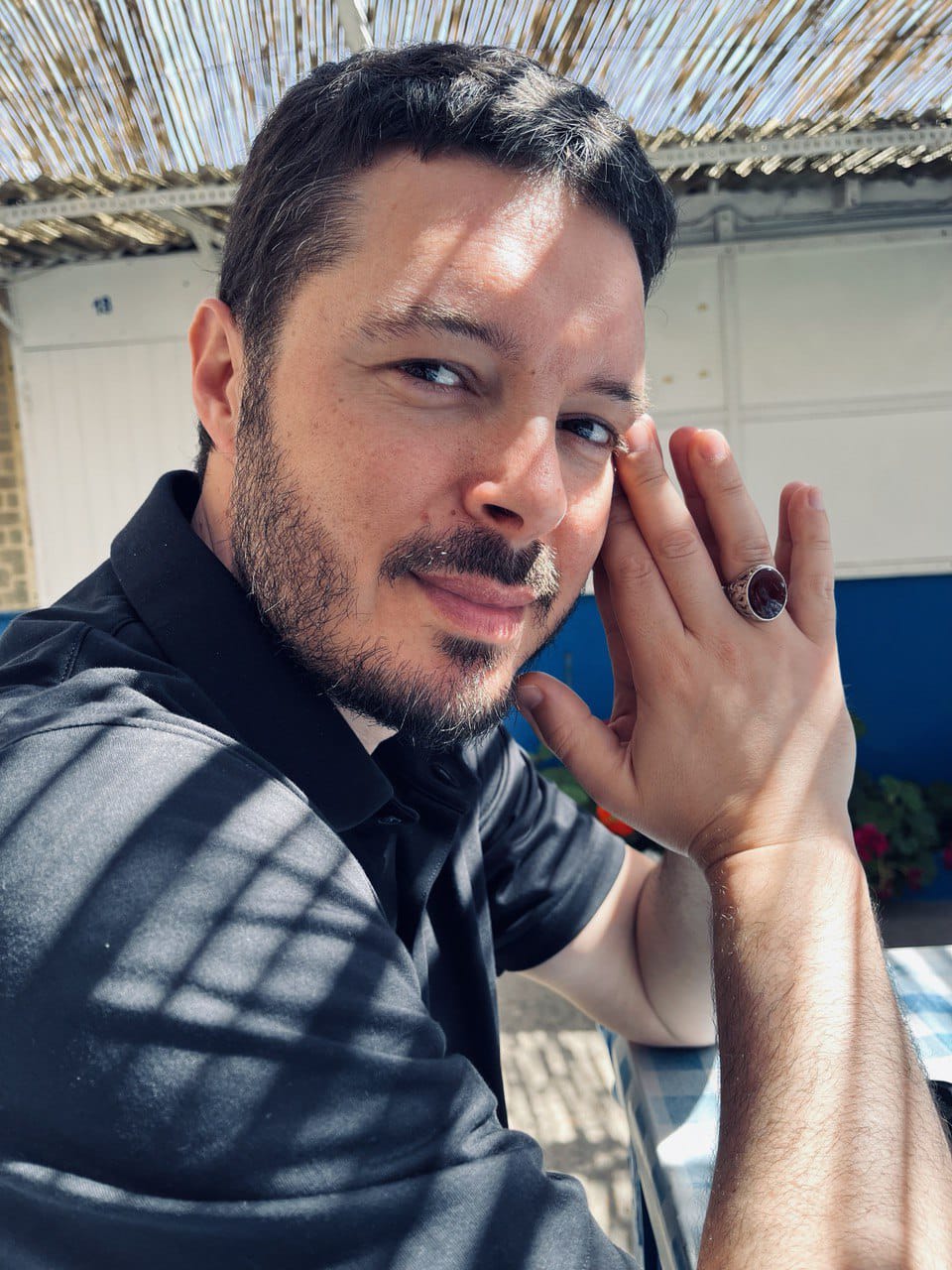Search
To search for an exact match, type the word or phrase you want in quotation marks.
A*DESK has been offering since 2002 contents about criticism and contemporary art. A*DESK has become consolidated thanks to all those who have believed in the project, all those who have followed us, debating, participating and collaborating. Many people have collaborated with A*DESK, and continue to do so. Their efforts, knowledge and belief in the project are what make it grow internationally. At A*DESK we have also generated work for over one hundred professionals in culture, from small collaborations with reviews and classes, to more prolonged and intense collaborations.
At A*DESK we believe in the need for free and universal access to culture and knowledge. We want to carry on being independent, remaining open to more ideas and opinions. If you believe in A*DESK, we need your backing to be able to continue. You can now participate in the project by supporting it. You can choose how much you want to contribute to the project.
You can decide how much you want to bring to the project.

Helios F. Garcés is an independent writer and researcher, part of the local anti-racist and anti-colonial struggles, dealing with above all the critical analysis of anti-gypsy activities. He works with and debates on decoloniality in the Spanish government and other territories, and is a colleague with whom we are constantly dialoguing about different areas of these debates. Here is a brief interview with him about his view on the “reparation and restitution” debate.
Nancy Garín: From your point of view and in light of the processes and debates in which you have been involved in recent years, both within the Spanish government and in other territories, what is your view about all the debates taking place in regards to the idea of “reparation and restitution” of the colonial process?
Helios F. Garcés: I think that, for several reasons, the current debates on “reparation and restitution” within the context of the Spanish government, function, at least at the moment, as pure noise, although they might generate necessary horizons later. Let me explain. First of all, and this is the fundamental point from which we should always start, because it is absolutely impossible to repair or restore, even minimally, the incalculable damages derived from centuries of persecution, dispossession, exploitation and genocide that the empire, by means of its colonies, enslavement and the corresponding forms of structural and institutional racism, part of the very nature of the emergence and maintenance of capital, has caused certain human communities and their territories.
Secondly, because the claim that, in territories like ours, in which the existence of racism, apart from isolated statements, has not been politically recognized, it is possible to have a serious, consequential debate on reparation and restitution, is absurd. I am not trying to delegitimize the noble and valuable desires of many comrades who belong to the broad spectrum of the struggles against racism in the Spanish government and who wish to have this debate, for I myself have used the term ‘reparations’ on many occasions. However, I must warn that if I have done so it is to help provoke a philosophical and political turn at a time when the ideology of “integration and inclusion” (which is nothing more than a friendly version of the ideology of integration) continues to dominate the political horizon of our situation, the Left included, when it comes to addressing the problem of race.
Lastly (to continue providing reasons), the debates on “reparation and restitution” within the heart of a capitalist society can be completely appropriated by neoliberal reasoning, which is also present in certain anti-racism. Obviously, I am not opposed to the idea of reparation but, as countless voices of black and indigenous radical thinkers have warned from Abya Yala and the USA, I maintain that the best reparation is the construction of a society beyond capitalism, imperialism and racism, that is, a society in which survival does not depend on exploiting, oppressing and dispossessing other peoples. Is this idealistic? If justifying the fundamental horizon of the anti-colonial struggles that gave rise to the fight against racism is, then yes.
Fortunately, there are more and more gypsies who clearly perceive this horizon and who, as an ancestrally oppressed people within Europe, don’t allow themselves to be hypnotized by the seductive siren songs sung by social democracy. Social democracy (and this is being seen clearly with regard to genocide of the Palestinian, as well as the Congolese, Sudanese and Haitian people) continues to depend on the genocide of other peoples, on the plundering of their wealth and on the gradual destruction of the planet. However, to tame the potential rebellion and emancipation that resides in critical self-organization, and to integrate completely the Roma people into capitalist society, social democracy generates enormous sums of crumbs and symbolic speeches whose management is handed over to the racist governments and organizations whose viewpoint is the legitimation of an unfair status quo in regards to people of other colors. There is no reparation or restitution possible in the current context, not for the Roma people. The only reparation and restitution possible is the abolition of the current situation and the creation of another truly just one for the people of the earth and for the earth itself.
N. G.: Within the field of art, and in regards to gestures taking place recently in Europe, the US and Canada to return objects from museums and archives, this is clearly something programmed by the central governments and in many cases the rules are put in place so that this return is not finally fulfilled. On the other hand, there are all these ideas and practices of “decolonizing” museums that numerous institutions in Western countries are carrying out. What do you think about all this?
H. F. G.: Actually, the answer to this question would take us back to the first question. As you have well said, it is a planned staging. The concern about whether or not a museum can be decolonized makes us confront the initial problem. Museums exist within a specific society, therefore, there is no decolonization of a museum without the decolonization of the society in which the museum itself is inserted. Does this mean that the governments of the Global South and, above all, the people, cannot claim certain reparative gestures? I would never say that. I believe that the governments of the Global South and, above all, the people who fight for their sovereignty in the face of imperial hegemony, have every right to tighten the screws on the institutions of the Global North to return what was stolen from them, including objects from their museums.
However, once again, here the perspective I promote is a much more ambitious one from an ethical, economic and political point of view. We dream of the decolonization of the modes of production that dominate our economic system, we dream of the decolonization of the power relations that dominate our political world, both at a local and global level (including the government itself and its institutions), and we dream of the decolonization of our colonized inner reality.
We daydream, of course, knowing that this reality is not only plausible but is the only possible reality if we want to live in a truly just world. And we dream while working to make this a reality. Although the situation is not very promising, the struggles of people within the ancient Third World and also within the empire itself are, as shown, for example, by the anti-imperialist solidarity generated, especially by students, in the US and in Europe with the Palestinian people.
N. G.: What would this process of “decolonizing” museum institutions, in terms of possible reparation and restitution in art and cultural spaces, be like for you? And what would decolonizing (if such a thing is possible) our epistemological framework of the art and culture be like? Do you think it’s possible?
H. F. G.: E There is a conclusion, which I consider terribly wrong, derived from the ideas of the two previous answers, with which I connect this third question. Some might think that until a profound decolonization is carried out in regards to the power structures that support our social model, an epistemological decolonization would be impossible. I don’t believe this.
What I believe is that these two processes, material and epistemological decolonization, are intimately connected, in the art world, as well. To fight for a politics of decolonization already implies making something happen in the epistemological field. There is a desire for a just society without oppression, dispossession and exploitation. There is a desire to break with the imperial monologue, with its oppressive logic, because there is something that beats in our communal conscience that rejects the implied omnipotence of such a story. What is clear, from my point of view, is that, as the most lucid exponents of decolonization have already said, decolonization must occur in the spheres of power, knowledge and being. Whether or not this is possible in the art world, and specifically within the museum world, must be answered from this awareness.
(Front image: Assembly of Espectros de lo Urbano, 2020)

Helios (Ilyas) F. Garcés is a writer and independent researcher. Part of anti-racist and anti-colonial movements, his areas of interest and work include the fields of critical literature, the politics of race in cultural production, the impact of racial capitalism on non-white communities, and the articulation of autonomous liberation narratives and anti-racist solidarity movements. Much of his work also focuses on a critical analysis of anti-Gypsyism. He is the author of several publications including the poetry collection Entrevista a un insecto atravesado por la luz (2021) and Mi abuela no ha leído a Marx (2019). He has participated in the book Miradas en torno al problema colonial. Anticolonial Thought and Decolonial Feminisms in the Global South (2019) and has just published the research “Religion v/s Revolution” Malcolm X, Muslim of liberation (Bella Terra, 2023)

NANCY GARÍN GUZMÁN (Valparaíso, 1972) is a journalist and art historian, works on projects related to critical thinking, new pedagogies, archives, memory and decolonialism. She studied the Independent Studies Program at MACBA (PEI). As a member of the Etcétera collective and the Errorist International. She has been part of research groups such as Peninsula: Colonial processes and artistic and curatorial practices (2012 -2018) and Contraimaginarios (Postpandémicos) (2022-2023). She is part of the research and production platforms Equipo re (2010 to present) with whom she has been developing the project Anarchivo sida and the group Espectros de lo Urbano (2017 to present) research around the urban as part of the colonial, capitalist and patriarchal machinery. During 2022-2023 she has been resident at ADKDW Cologne and is part of the research group Contraimaginarios at Arts Santa Monica/Barcelona . She has worked as a teacher and mentor/tutor in different spaces of critical and experimental pedagogies. She is currently teaching at PEI/MACBA (2023-2024).
"A desk is a dangerous place from which to watch the world" (John Le Carré)